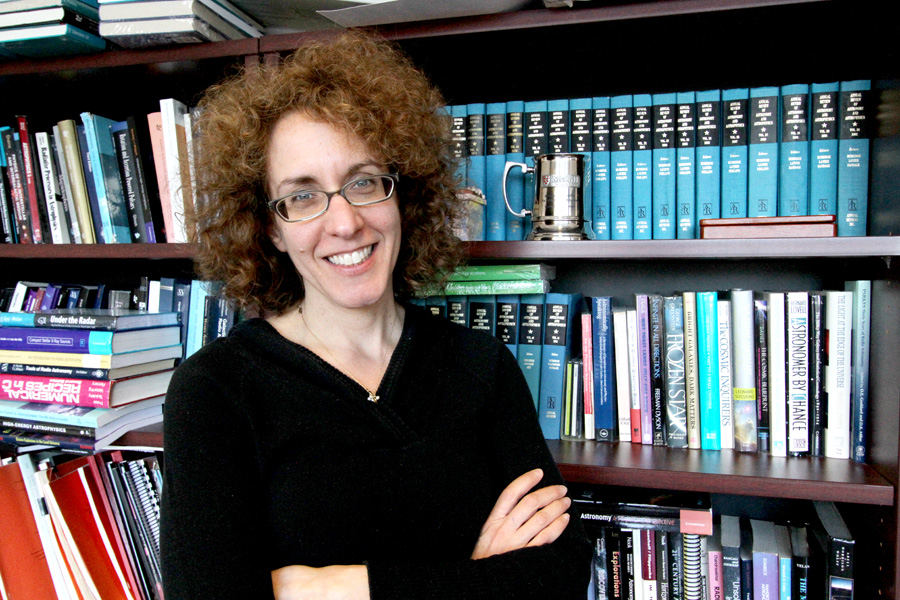In honour of “Women’s Month,” the Tribune is profiling different female researchers at McGill, and the story behind their work.
Imagine walking into a classroom filled entirely with people of the opposite gender. McGill Physics Professor Dr. Victoria Kaspi remembers her shock at the overwhelmingly male cohort during her undergraduate studies at McGill. While a part of the minority, her gender was never an issue until she started graduate school. During her university orientation, she attended a “Women in Physics” luncheon. At the time, Kaspi was surprised by the need for such an event, but in retrospect, she sees it as a hint of the challenges she would later face in her career.
As a faculty member, Kaspi is more aware of these issues than she was as a student, and she is not alone. The need to address gender inequality in the physics department is also felt by her colleagues. The department started a “Women in Physics” program that aims to mentor and foster the community of women in the field. Through organizing various speaker events, including breakfasts featuring host speakers from other universities, students can learn more about the challenges faced by, and opportunities available to women in physics. What’s more, these events provide students with the chance to hear about the career paths of other female physicists, building a stronger sense of community amongst the women enrolled in the physical sciences at McGill, and their professors.
At the faculty level, the proportion of female professors in the physics department at McGill is higher than average. While the department is always interested in more female applicants, Kaspi stressed that there’s no compromising on quality.
“Ultimately, it comes down to research excellence, and teaching ability,” Kaspi said.
With over 200 publications and numerous scientific awards, Dr. Kaspi embodies both of these qualities. Along with her role as a physics professor, she holds the positions of the Lorne Trottier Chair in Astrophysics and Cosmology, Canada Research Chair in Observational Astrophysics, and is a Fellow of the Royal Society, a group of scientists, engineers and technologists from the UK and the Commonwealth, all of whom are elected for life on the basis of excellence in science.
Kaspi’s research focuses on neutron stars—highly dense stars that are the close cousins of black holes.
“It’s a way to study something in an extreme environment, and [with] extreme properties: extremely high density, such that it’s higher than the atomic nucleus; extremely high gravity, so that regular gravity as described by Newton doesn’t work—you need Einstein’s theory of relativity, and extreme magnetic fields, highest in the universe and stars,” Kaspi explained. “You get to study a lot of extreme physics, but [neutron stars] are observable, so it’s not like a black hole, which is hard to observe.”
One subject of Kaspi’s research is pulsars, a type of neutron star characterized by the light they emit at precise time intervals. Based on Kaspi’s research, these stars could potentially act as beacons to guide spaceship navigation in the future.
“They rotate really fast and with a beam of light, almost like a lighthouse,” said Kaspi.
On top of her impressive research accomplishments, Kaspi is also the mother of three young children. She commented that while she has now struck a great work-life balance, juggling her children with her career was one of the hardest challenges in her life that she has faced—and one she never anticipated.
While Kaspi points out the challenges of being a female in the field of physics, she does not mean it as a deterrent. Her career has allowed her to travel all over the world, and engage in amazing opportunities.
“[I’ve been to] mountain peaks in Chile, and spent months in the outback of Australia,” Kaspi recalled, noting that she has also met amazing colleagues through her work. “I feel totally blessed doing it, and I wouldn’t trade it for the world.”







